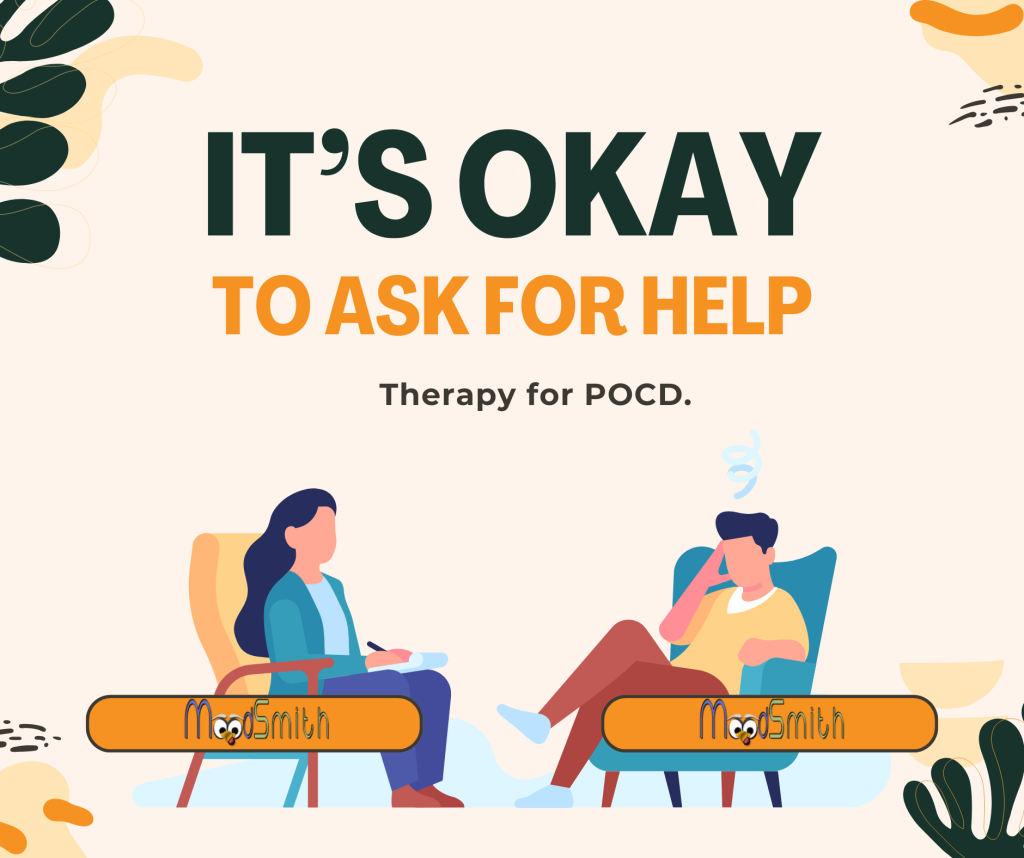If you have been struggling with thoughts relating to POCD, I appreciate you might be hesitant to seek help, possibly due to deep shame and fear relating to the thoughts in your head but if you were in session with me now I would explain that all the thoughts, images, feelings and urges are symptoms; symptoms of a specific type of Obsessive Compulsive Disorder. In this article I want to talk to you about treatment options and reiterate that regardless of the thoughts, it is still OCD, and help is available.
If you haven’t already done so, you can read my guide to POCD and the following articles should be useful to educate yourself on the topic.
Stop Intrusive Thoughts

Online course to help manage intrusive thoughts
POCD (Pedophile Obsessive-Compulsive Disorder) is a complex subset of OCD (Obsessive-Compulsive Disorder) that affects individuals who experience unwanted and intrusive thoughts or obsessions related to paedophilia. These thoughts are ego-dystonic, meaning they directly conflict with an individual’s values and self-image. POCD can cause significant distress, leading to intense anxiety, guilt, and shame. As a result, individuals may engage in avoidance behaviours and suffer impairments in their daily functioning, including disruptions in their work, social life, and personal relationships.
Understanding the nature of these thoughts as symptoms of a disorder rather than desires is a critical step in seeking appropriate help and I’ll talk about therapy now.
POCD Treatment
POCD is OCD so the models of therapy are those that have been shown to be effective with obsessive compulsive disorder, and the main ones are Cognitive Behavioural Therapy (CBT) and Exposure and Response Prevention (ERP).
The thoughts that you will be getting are called obsessions and these can trigger overwhelming anxiety and fear. A talking therapy called cognitive behavioural therapy (CBT) helps address this by teaching you to identify and challenge the negative thought patterns that fuel this anxiety, rather than accepting them as some sort of truth about yourself, which you are probably doing now. All the people that I have worked with who have POCD experience deep shame and guilt, believing they are fundamentally flawed or even dangerous. The psychoeducational nature of therapy, particularly CBT explains beyond a shadow of a doubt that the thoughts are not a reflection of you as a person, you are simply someone struggling with a horrible form of OCD.
Learn more about how CBT can help with POCD
If you are pre therapy, I can imagine that you are reacting to the thoughts as if they were true, or in case they could become true, and have already started to change the way you do things – you are probably avoiding children, and Exposure and Response Prevention (ERP) gradually helps you confront these fears in a controlled way, reducing the need for avoidance and restoring your ability to engage in everyday life.
Learn more about how ERP can help with POCD

Acceptance and Commitment Therapy (ACT): ACT emphasizes accepting unwanted thoughts and feelings rather than attempting to control or eliminate them. It encourages individuals to commit to actions that align with their values despite the presence of distressing thoughts. ACT helps individuals build psychological flexibility and fosters the development of coping skills to manage their POCD symptoms more effectively.
Mindfulness-Based Cognitive Therapy (MBCT): MBCT combines traditional CBT elements with mindfulness techniques to assist individuals in recognizing and altering negative thought patterns. By teaching individuals to be present and non-judgmental observers of their thoughts, MBCT has shown promise in treating anxiety disorders and may offer benefits for those with POCD.
What to Expect in POCD Therapy
POCD therapy typically consists of weekly sessions with a therapist who has specialized training and experience in treating OCD and related disorders. Depending on personal preferences and the therapist’s availability, these sessions may take place in person or via teletherapy platforms.
During therapy sessions, individuals are encouraged to explore their thoughts and feelings associated with POCD. Therapists may employ a variety of techniques, such as cognitive restructuring, exposure and response prevention, and mindfulness exercises, to help individuals cope with their symptoms. Additionally, therapists often provide homework exercises for individuals to practice skills and techniques outside of the therapy sessions, reinforcing the progress made during therapy.
It is crucial to acknowledge that therapy for POCD is not an overnight solution, and significant improvements may take time to manifest. Patience and dedication to the therapeutic process are essential for achieving the most beneficial outcomes.
Finding a Therapist for POCD
Please remember that POCD is a sub type of OCD, so you should be looking for a therapist who can treat OCD. This is important as even though it can feel like your world is falling apart, as a psychologist (and other good therapists also) will be aware that they are obsessions, intrusive thoughts, that need to be worked with, with models of therapy like CBT and ERP.
- Research: Begin with researching therapists in your local area who have expertise in treating OCD and related anxiety disorders. Recommendations from your primary care physician or trusted acquaintances can also be valuable.
- Check Credentials: It’s important to confirm that the therapist is properly licensed and has experience with POCD specifically. Inquiring about their training, therapeutic approach, and success with treating POCD can provide additional insights.
- Consider Online Therapy: For those residing in rural areas or who prefer the convenience of online sessions, seeking an online therapist who specializes in POCD treatment might be a viable option.
- Schedule a Consultation: Many therapists offer initial consultations free of charge, which can be an excellent opportunity to ask questions, discuss your concerns, and gauge whether the therapist’s style and approach are compatible with your needs.
Additional Support for POCD
While therapy is a cornerstone of treatment for individuals with POCD, there are other support options available that can complement the therapeutic process. These include:
